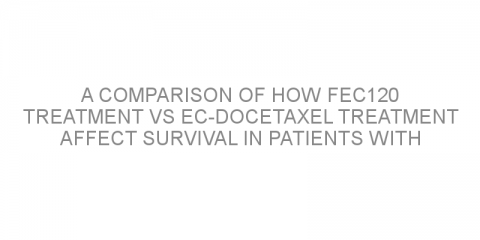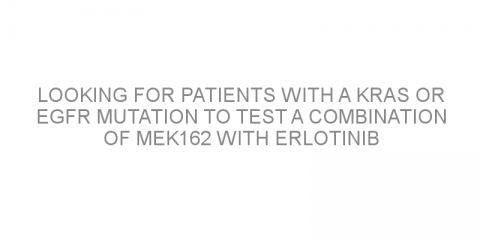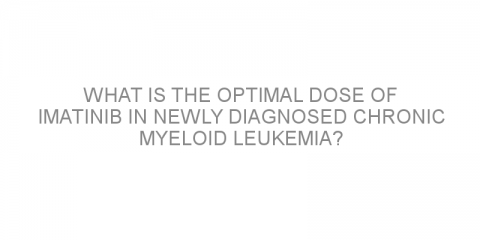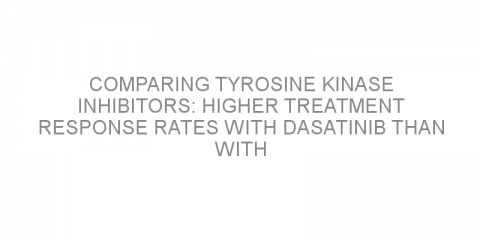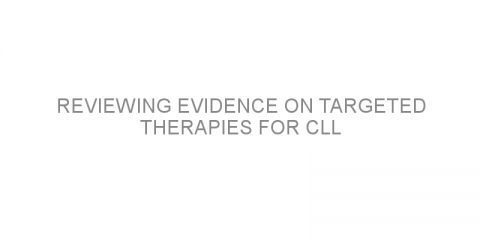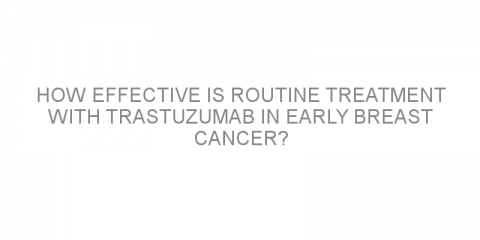In a nutshell This study compared the side effects and outcome of two drug regimens in women with high-risk node-positive breast cancer (BC). Both treatment regimens were found to have similar survival outcomes. Some background Standard treatment in node positive BC (cancer that has spread to the lymph nodes) consists of two categories of...
Read MoreCurrent treatment status-Did not start treatment yet Posts on Medivizor
The effectiveness and cardiac safety of CMF plus trastuzumab in HER2-positive metastatic breast cancer
In a nutshell This study investigated the safety and effectiveness of treatment with combination cyclophosphamide (Cytoxan), methotrexate (Otrexup) and 5-fluoruoracil (Efudex) (CMF) plus trastuzumab (Herceptin) in HER2-positive metastatic breast cancer (MBC, cancer that has spread beyond the breast) patients. CMF plus trastuzumab (CMF+T) was found to...
Read MoreLooking for patients with a KRAS or EGFR mutation to test a combination of MEK162 with erlotinib
In a nutshell This phase I/IB trial aims to determine whether combining MEK162(ARRY-162) and erlotinib (Tarceva) is safe and effective at treating patients with stage IV non-small cell lung cancer (NSCLC) with KRAS or EGFR mutations and no curative treatment options. The main outcome of the trial will be maximum tolerated dose (MTD – highest dose...
Read MoreLooking for young Hodgkin lymphoma patients to test the safety and effectiveness of combined treatment with brentuximab vedotin and chemotherapy
In a nutshell This phase 3 trial aims to test the safety and effectiveness of a combined treatment with brentuximab vedotin (BV; Adcetris) and combination chemotherapy in younger patients with recently diagnosed Hodgkin lymphoma. The main outcome to be measured will be the side effects related to treatment and the response of the tumor to the...
Read MoreWhat is the optimal dose of imatinib in newly diagnosed chronic myeloid leukemia?
In a nutshell This study explored whether a higher starting dose of imatinib (Gleevac) is safe and effective as a first-line treatment for chronic myeloid leukemia (CML). This study concluded that response rates were similar between the higher and lower dose after 1 year, but the response occurred earlier with the higher dose. Some background...
Read MoreHow effective is metronomic chemotherapy with vinorelbine and capecitabine in patients with advanced HER2-negative breast cancer?
In a nutshell This study investigated whether metronomic chemotherapy with oral vinorelbine (Navelbine) and capecitabine (Xeloda) was effective in treating patients with advanced HER2-negative breast cancer (BC). This form of treatment was found to be safe and effective for this patients group. Some background Metronomic chemotherapy is a form of...
Read MoreAdhering to imatinib treatment affects how well patients respond to treatment
In a nutshell This study examined how adhering to imatinib (Gleevac) treatment for chronic myeloid leukemia (CML) affects response rates. Researchers reported superior treatment response rates among patients with high adherence to the treatment regime. They suggested that poor adherence may therefore contribute to poorer treatment outcomes. Some...
Read MoreComparing tyrosine kinase inhibitors: Higher treatment response rates with dasatinib than with imatinib
In a nutshell This study compared the effectiveness of two types of tyrosine kinase inhibitors – imatinib (Gleevac) and dasatinib (Sprycel) – for the first-line treatment of chronic myeloid leukemia (CML). Researchers reported superior treatment response with dasatinib than with imatinib. Some background Targeted therapy is the...
Read MoreTreatment options for younger AML patients
In a nutshell This article reviewed the options for induction therapy (therapy to induce remission) in younger patients (less than age 60) with acute myeloid leukemia (AML). Some background AML occurs due to genetic changes (mutations) to stem cells (immature blood cells). These genetic changes can cause AML cells to become resistant to treatment...
Read MoreReviewing evidence on targeted therapies for CLL
In a nutshell This study reviewed recent evidence on newly developed targeted therapies for chronic lymphocytic leukemia (CLL). Authors concluded that newly developed targeted therapies are an effective treatment option for CLL, including CLL that is difficult to treat. However, further trials are needed. Some background CLL is cancer of the blood...
Read MoreComparing axillary lymph node ultrasound and fine needle aspiration in breast cancer
In a nutshell This study investigated whether patients with a suspicious axillary lymph node (ALN) but negative fine-needle aspiration result (FNA) can be considered as having node-negative disease (AUN). The study concluded that patients with suspicious ALN on ultrasound but negative FNA results can be treated as having node-negative disease. Some...
Read MoreHow effective is routine treatment with trastuzumab in early breast cancer?
In a nutshell This study investigated the role of trastuzumab (Herceptin) as part of standard care in patients with human epidermal growth factor receptor-2 positive (HER2+) early breast cancer (BC). The study conclude that trastuzumab was effective in general practice, including patients not often included in clinical trials (such as the...
Read More
